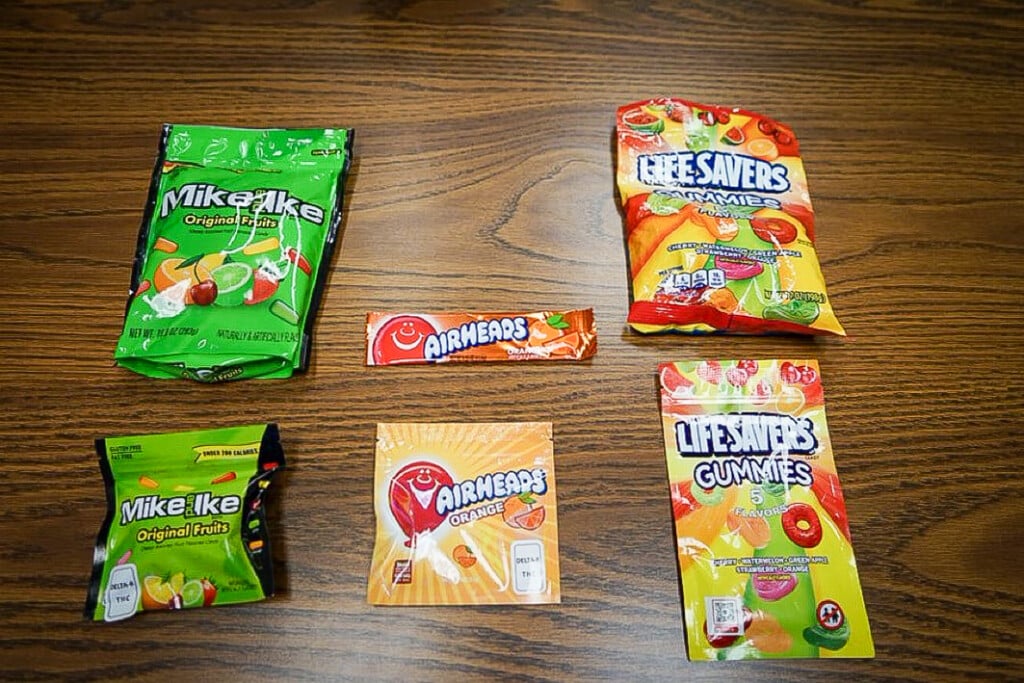Brew Hoo
Last month, Kansas City Councilman Ed Ford took a sober look at the city’s outdated liquor code and then ordered up a new law. Ford and his council colleague Teresa Loar had heard complaints about late-night bars’ disrupting residential areas. “When I checked with the city where 3 a.m. bars are allowed, to my surprise, they were allowed everywhere,” Ford says.
Not anymore. The City Council decided on December 5 that new 3 a.m. licenses will be granted only to bars within one mile of a convention hotel.
Because the majority of convention hotels are downtown, some observers thought it might be time to celebrate — city leaders appeared to have rewritten the law to bring more nightlife to the struggling area. After all, downtown revitalization has been City Hall’s rallying cry all year.
But, Ford explains, fueling some excitement downtown had nothing to do with the 3 a.m. amendment. “That might be an outgrowth of it, but it wasn’t [the intent],” he says.
In fact, it probably won’t even be an outgrowth. For the most part, it’s no easier to open a bar downtown now than it was at this time last year.
A year ago, the Pitch reported the story of downtown bar owner Mike Gouddou, who couldn’t get a license to stay open until 3 a.m. — which he considered vital to compete with bars in Westport and the Plaza — because one powerful neighbor, Commerce Bank, wouldn’t consent (“It Only Takes a Spark,” January 3, 2002). To obtain the 3 a.m. license, Gouddou needed signatures from at least half of his downtown neighbors. As it turned out, Tower Properties, the real estate arm of Commerce Bank, owned the majority of properties surrounding Spark Bar, and the company had no intention of helping Gouddou get his license.
But even before his struggle with Commerce, Gouddou had to wrestle with City Hall just to open Spark Bar. To renovate a blighted building and start his own business, Gouddou endured the city’s infamously convoluted codes process, causing delays that put him more than six months behind schedule and cost him thousands of dollars. When Spark Bar was finally ready to open, the city withheld Gouddou’s occupancy license at the last minute, setting him back another week.
Eventually, Spark Bar became a bright spot in an otherwise dreary downtown scene. But an embattled Gouddou lost faith when the city denied him a 3 a.m. license. “There’s no need for me to put up with such a hopeless situation,” he told the Pitch days after closing Spark Bar (“Boomtown Rats,” January 31, 2002).
In the year since, Kansas Citians have heard a lot of political talk regarding downtown. In December 2001, Mayor Kay Barnes unveiled her dream of a twenty-block residential and entertainment district called SoLo. A new library and its surrounding lofts, a performing-arts center and, most recently, a possible arena, have all been touted as major projects that will reinvigorate downtown nightlife.
But none of these efforts addresses the frustration felt by business owners whose small attempts to rebuild downtown are met with bureaucratic obstruction.
“There are people in this city that will not do business with Kansas City, Missouri,” says Tom Trabon, chairman of the Downtown Council’s housing task force, “because of the time delays, the hassles, the perception of a nonproactive environment.”
That perception could wind up hurting Trabon, whose group would like to see more commercial development around the loft projects already in the works downtown. Nonetheless, he contends that the city has made progress in the past year.
“I think the mayor has pushed very hard to get the city to be more cooperative, or at least to get that perception,” Trabon says.
The greatest improvement Trabon cites is one that would have saved Gouddou months of frustration. City Hall critics have long bemoaned the poor communication between city planners (who grant work permits) and city inspectors (who review the work when it’s finished). In the past, business owners have submitted work plans, received permits and then carried out the work — only to have inspectors withhold their blessings because the original work plans didn’t meet codes.
“It may not sound like much,” Trabon says, “but in the past, inspectors would just come out and say, ‘No, you can’t get your certificate of occupancy because this is wrong. Period. Sorry.’ Now they’ve got to go back to the permit division and review division and then come back to you and say they’ve either resolved this or there’s an issue, and this is the reason why.”
Other problems persist, though. Trabon says the city should be able to issue work permits for “small jobs” — which would include most bar and restaurant jobs — in two weeks, not the month it currently takes.
And getting a liquor license in Kansas City can take much longer than that; the city’s Regulated Industries Division can take up to three months to process an application. Sources tell the Pitch that such delays are still the norm.
Whether it’s City Hall’s reputation, the economy, or both, downtown nightlife sputtered again in 2002. Of the nine bars and restaurants in the area that applied for new liquor licenses last year, seven already existed. (Trago, for example, simply applied for a 3 a.m. license to replace its 1:30 a.m. license.) Only four businesses — the City Tavern, Webster’s Restaurant, Balanca’s and Kabal — could be called new additions, though even that’s generous; the latter two simply replaced bars that died before them.
Last month, City Council members missed an opportunity to buck that trend when they re-examined the 3 a.m. law. At the very least, the council might have looked at parking requirements for downtown bars and restaurants. The law demands that each such business offer one parking space for every 75 square feet of its establishment (or 50 square feet for “taverns” that don’t serve food). Businesses within the downtown loop are exempt from that requirement, but the area arbitrarily defined by the surrounding freeway covers only a fraction of what is considered downtown Kansas City (especially according to the mayor, who says it stretches from the Missouri River to the Country Club Plaza).
The Downtown Council has called for the parking exemption to cover a much larger area, which would make downtown an easier, more attractive area to develop.
Most important, Trabon says, the city needs a marketing campaign to let small businesses know that City Hall is trying to change its ways.
“City Hall needs to be out there saying, ‘We want you, and we will help you get your project done.’ That’s got to be what they’re selling,” Trabon says.
In the meantime, few downtown businesses are selling more drinks. The Pitch tried to find Mike Gouddou, but he appears to have left town.




